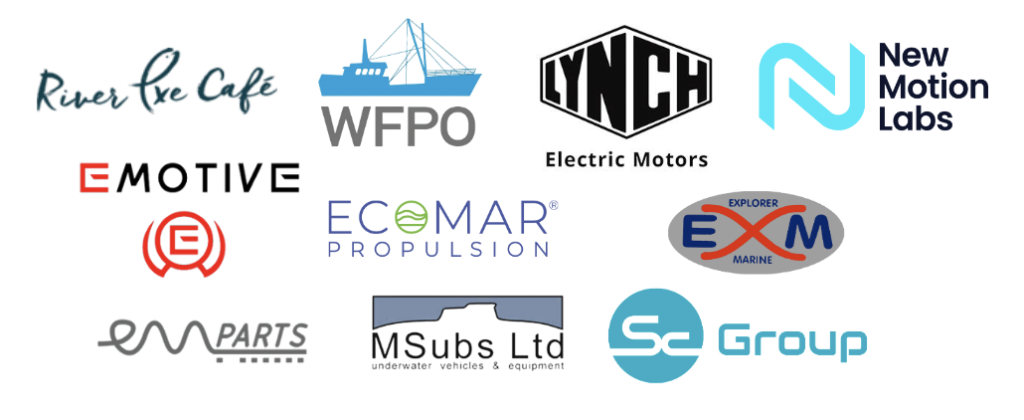The Centre for Future Clean Mobility partners with businesses to develop low-emissions, high-efficiency integrated power systems for applications in the aerospace, automotive, marine, and rail sectors.
The Marine Business Technology Centre (MBTC) plays a crucial role in supporting local Small and Medium Enterprises (SMEs) within the maritime sector. The MBTC serves as a dedicated hub for fostering innovation and providing technological expertise to SMEs, helping them navigate the ever-evolving landscape of the marine industry. The MBTC collaborates with its partner organisations to deliver a diverse array of resources and services, ensuring that SMEs in the maritime sector receive comprehensive support. This tailored approach addresses the specific requirements of SMEs, empowering them to navigate the evolving industry landscape with confidence and seize opportunities for growth.
As a partner in the MBTC project, the University of Exeter’s Centre for Future Clean Mobility (CFCM) represented the university’s involvement. The CFCM played a crucial role in leveraging its expertise and resources to support local SMEs in their efforts to achieve their decarbonisation objectives.

During the culminating Marine Innovation Event of the MBTC Project, the MBTC board recognised three companies with awards for their outstanding collaborative efforts with the project partners. We were thrilled that, out of the three awards presented, two were granted to companies supported by CFCM. The River Exe Cafe received the award for their impact on Devon, while Lynch Motors was honoured with the Innovation award for their contributions. These accolades celebrated the exceptional achievements and contributions of these companies within the maritime sector.


The River Exe Café is a floating barge just off the water-ski lane on the River Exe which is accessible by boat. River Exe Group is an SME based in Devon in the maritime leisure sector who is looking to reduce their carbon footprint and reliance on fossil fuels. There is an opportunity for River Exe to decarbonise their assets by electrification, but analysis is required to determine which enhancements make it commercially viable.
In order to investigate the system used by the River Exe, CFCM designed a tool to model a completely customisable system on board the River Exe Café. The analysis tool which indicated River Exe could make Carbon savings of 7.94 kg/day by the implementation of a solar panel and battery system as opposed to solely using a diesel generator, the proposed system would work alongside a smaller 15kW generator and an 80kWh battery and could reduce River Exe carbon footprint 1214 kg per season.
Transitioning the current system to a battery would have many benefits to the company in addition to reducing its contribution to global warming. One of the key advantages for the company is cost reduction, electrification would have cheaper run costs than diesel and this gap will only increase as diesel prices increase over the next few years.
Another key advantage is reduction in noise, the electrified system would provide a more pleasant experience for the customers. The current system is noticeably loud which can be distracting for customers. An immediate benefit of implementing this hybrid system is reduction in generators active hours. Reducing the strain on the generator will mean it lasts for longer and is less disturbing throughout a 24hr period. There are also environmental factors, when using diesel, it can be harder to clean up spillage and therefore reducing this is beneficial. The higher the levels of Photovoltaic (PV) materials present will equal a lower carbon footprint. The current limitation on the PV is the structural rigidity of the café roof.
Paul Craven, Managing Director at River Exe said,
“Through working with the Centre for Future Clean Mobility I have been able to make investment decisions that will not only save me money on fuel, but also reduce my carbon footprint. The River Exe Group is committed to becoming zero emission business and this is a significant move forward for me and the team. The Centre for Future Clean Mobility are a research group based out at Exeter Science Park and through partnership with the Marine Business Technology Centre we have had access to a world class knowledge base right here in Devon”.
The Centre for Future Clean Mobility partners with businesses to develop low-emissions, high-efficiency integrated power systems for applications in the marine, off-highway, rail, defence, and energy sectors.
Website by NOSY Creative Agency